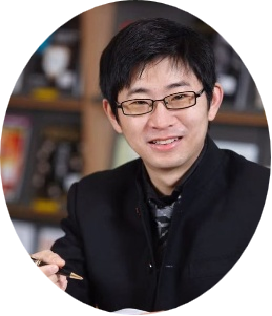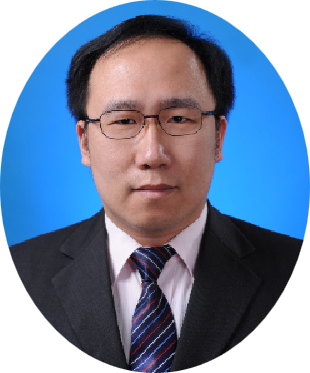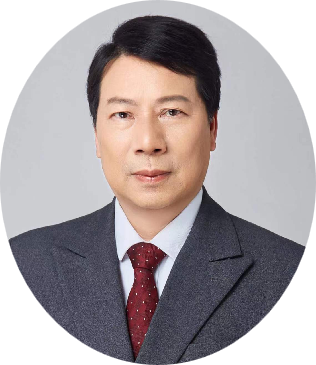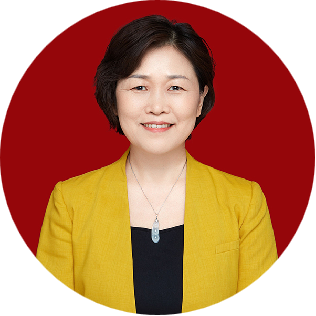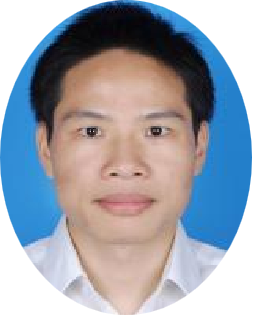
| Prof. Junlong ChenSouth China University of Technology, ChinaIEEE Fellow, AAAS Fellow, IAPR Fellow, Fellow of Academia EuropaeaDr. C. L. Philip Chen is a distinguished national expert, Dean and Chair Professor of School of Computer Science, South China University of Technology. Professor Chen is the vice chairman of the Chinese Association of Automation, the director of the Health Intelligence and Digital Parallel Human Engineering Center of the Ministry of Education, the director of the Key Laboratory of Computational Intelligence and Cyberspace Information of Guangdong Province, the co-chairman of the Guangdong Artificial Intelligence Industry Association, and the deputy director of the Pazhou Laboratory. He is an IEEE Fellow, AAAS Fellow, IAPR Fellow, Fellow of the Academia Europaea, European Academy of Sciences and Arts, Chinese Society of Automation (CAA), Chinese Society of Artificial Intelligence (CAAI) and Hong Kong Institution of Engineers (HKIE). Professor Chen is a former director of IEEE Trans. on Cybernetics (2020-2021), and IEEE Trans. on Systems, Man, and Cybernetics: Systems (2014-2019) editor-in-chief of two top SCI journals, was the international general President of the society (2012-2013), and is also the editorial board of the domestic journals CAAI Trans on AI, Science in China, and Acta Automatica. In 2018, Professor Chen received the IEEE Norbert Wiener Award for Cybernetics in System Science, the 2021 IEEE Joseph Wohl Lifetime Achievement Award, and the Wu Wenjun Award for Outstanding Contribution to Artificial Intelligence of the Chinese Society for Artificial Intelligence. Professor Chen's research interests are mainly in Intelligent Systems and control, computational intelligence, Mixed Intelligence, and data science. He is a global Highly Cited Scientist in Clarivate Analytics for 5 consecutive years from 2018 to 2022 (2018 in Computer Science, 2018 to 2022 in Engineering and Computer Science). |
Prof. Min ChenSouth China University of Technology, China, IEEE Fellow, IET Fellow, H-index: 94Chen Min is a Professor and PhD supervisor at the School of Computer Science and Engineering, South China University of Technology. He is an IEEE Fellow (International Institute of Electrical and Electronics Engineers) and an IET Fellow (Institution of Engineering and Technology). His Google academic citations exceed 39,500 times, with an H-index of 94. He was awarded Citation Scholar in 2018, 2019, 2020, 2021, and 2022. At 23, he graduated from the School of Electronics and Communication Engineering, South China University of Technology, and later served as a postdoctoral fellow at Seoul National University, South Korea, and the University of British Columbia, Canada. He taught at Seoul National University in 2009. After 12 years of overseas work as a high-level talent, he returned to China and established the HUST Embedded and Pervasive Computing Laboratory. Currently, he is a professor and doctoral supervisor at the School of Computer Science in China. He has published over 200 papers in prestigious international journals and conferences such as IEEE JSAC, IEEE TNNLS, IEEE TPDS, IEEE TWC, IEEE TSC, INFOCOM, Science, and Nature Communications. He holds over 20 national invention patents. He has authored 12 monographs and textbooks, including the American English textbook "Application of Big Data Analysis," which has been adopted by 40 renowned universities, including Harvard and Stanford. He has been invited to speak at 16 international academic conferences, winning several best conference paper awards, including the Fred W. Ellersick Prize of the IEEE Communication Society (2017), the IEEE Automotive Technology Society Jack Neubauer Memorial Award (2019), and the IEEE ComSoc Asia Pacific Region Best Paper Award (2022). |
|
| Prof. Lei ShuNanjing Agricultural University, China, IEEE Senior MemberProf. Lei Shu received his Bachelor's degree in Computer Science from Central South University for Nationalities in 2002. In 2005, he received his Master's degree in Computer science from Kyung Hee University, South Korea. He studied for a PhD with the National University of Ireland, Galway. In addition, he was a special researcher at Osaka University in Japan, and is currently a professor at the University of Lincoln in the United Kingdom, a professor at Nanjing Agricultural University, and the Director of Bion Intelligent Plant Protection Research Institute at Nanjing Agricultural University. The research field is Internet of Things, big data, artificial intelligence, intelligent plant protection. |
Prof. Dazhong MaNortheastern University, ChinaMa Dazhong is a professor and doctoral supervisor of Northeastern University. From 2000 to 2011, he received his bachelor's, Master's and doctorate degrees from Northeastern University. He is currently a member of IEEE Computational Intelligence Society and a member of the Chinese Society of Automation. In addition, He is also Automatica, IEEE Transactions on Neural Networks, IEEE Transactions on Fuzzy Systems, Reviewer for IEEE Transactions on Cybernetics and other international journals. His research interests are the application of artificial intelligence technology in power systems, power systems and their automation, power electronics technology and theory, energy Internet operation, optimization and control. |
|
| Prof. Feiqi DengSouth China University of Technology, ChinaDeng Feiqi is a professor and doctoral supervisor of South China University of Technology. He is a Fellow of the Chinese Society of Automation (CAA). From September 1979 to July 1983, he studied at the Department of Applied Mathematics, Hunan University and obtained his Bachelor of Science degree. From August 1983 to August 1995, he taught at Northeast Heavy Machinery College; From September 1995 to June 1997, he studied in South China University of Technology as a doctoral student majoring in control theory and application, and obtained the doctorate degree of engineering, and was awarded the top ten Doctors in Guangdong Province (the first place). Since July 1997, he has been teaching at South China University of Technology. He was promoted to professor in 1999 and to doctoral supervisor in 2000. He worked and studied at the Chinese University of Hong Kong and Illinois State University (UIUC). |
Prof. Qingyun DaiPresident of Guangdong Polytechnic Normal University, ChinaProf. Dai Qingyun is currently President of Guangdong Normal University of Technology, doctoral supervisor of Guangdong University of Technology, and member of the sixth Degree Committee of Guangdong Province. In 1988, she graduated from the Department of Automatic Control Engineering of Huazhong University of Science and Technology with a bachelor's degree in testing technology and automatic instrumentation. In 1991, she graduated from the Department of Mechanical Engineering of Huazhong University of Science and Technology with a master's degree in Industrial automation. Graduated in 1991 and was assigned to Guangdong University of Technology. In 1998, she was admitted to the School of Electronics and Information Science of South China University of Technology to study for the doctoral degree of communication and information system on the job, and obtained the doctoral degree in 2001. She was named associate Professor in 1999 and professor in 2004. In 2003, she worked as a postdoctoral researcher at the Mathematics Station of the School of Mathematics, Sun Yat-sen University for three years. In 2005, she worked as a visiting professor at the University of Nantes in France for two months. In 2011, she was awarded as a doctoral supervisor. During this period, she successively served as the deputy dean of the School of Information Engineering and the director of the Scientific Research Division (Humanities and Social Sciences Division). In January 2014, she was transferred to the Standing Committee of the Party Committee and Vice President of Guangdong Normal University. She is mainly engaged in the research and management work in the fields of industrial Internet technology and intellectual property big data, medicine and health big data, education management and science and technology evaluation. |
|
| Assoc. Prof. Changdong WangSun Yat-Sen University, China, IEEE Senior Member, H-index: 39Changdong Wang, Associate Professor, doctoral supervisor, IEEE Senior Member, CCF Distinguished Member, School of Computer Science, Sun Yat-sen University. His research direction is graph data mining and application. In the past five years, he has published nearly 100 papers of CCF Class A conferences such as IEEE Trans journals or KDD, including 6 ESI highly cited papers. More than 5,800 Google citations, H-index 39. He has presided over 16 projects, including Guangdong Natural Science Foundation - Outstanding Youth Fund, Guangdong Natural Science Foundation - Key Project, and National Nature - Surface Project. The research results have won the first prize and second prize of Guangdong Natural Science Award, etc., and have been applied to scenes such as telecom AI anti-fraud, intelligent farming, and accurate docking of enterprise science and technology commissioners. He guided the students to win the excellent master's degree thesis Award of the Chinese Society of Electronics. He is an associate editor (AE) of the Journal of Artificial Intelligence Research (JAIR, CCF Class B SCI) and Neural Networks (CCF Class B SCI), an authoritative journal on artificial intelligence. Guest Editor of IEEE Transactions on Big Data (TBD, CCF Class C SCI), 16th International Conference on Advanced Data Mining and Applications, 16th International Conference on Advanced Data Mining and Applications, ADMA 2020) Program Committee Co-chair (PC Co-Chair). He has served as the Vice President of CCF Guangzhou Branch (2019.3-2021.3) and the President of CCF-YOCSEF Guangzhou (2020-2021), and is currently the Working Group Leader of CCF Student Branch (2021.4-2023.4) and the Executive Committee of CCF Member and Branch. |

